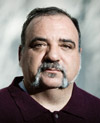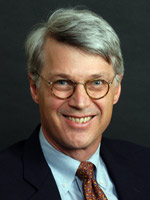
Security and Insecurity: An Inquiry into U.S. Foreign Relations in a Rapidly Changing World
Reed began its first classes in 1911. Committed to intellectual rigor and meritocracy; rejecting intercollegiate sports and fraternal societies; and imbued with a sense of academic freedom and nonconformity, Reed has for the past 100 years served as a groundbreaking model of the liberal arts while consistently preparing its graduates to be involved, with both independence of mind and pragmatism of thought, in the world around them.
This year’s Public Policy Lecture Series—honoring Reed’s centennial—addresses the connections and tensions between academia and government service, exploring the sometimes uneasy relationship between these interrelated traditions through a set of perspectives on the past, present, and future of U.S. domestic and international policies.
All events are free and open to the public.
A Conversation with Joshua E.S. Phillips and Darius Rejali


February 16
Thursday
7:30–9 p.m.
Psychology 105
Joshua E.S. Phillips ’96, author of None of Us Were Like This Before: American Soldiers and Torture has reported from Southeast Asia, the Middle East, and South Asia. His work has appeared in the Washington Post, Newsweek, Salon, the San Francisco Chronicle, and the Atlanta Journal-Constitution, among other publications. His radio features have been broadcast on NPR and the BBC. Phillips is the recipient of a Heywood Broun Award and the Alfred I. DuPont-Columbia University Award for excellence in broadcast journalism for his American Radio Works documentary, “What Killed Sergeant Gray.”
Darius Rejali, professor and chair of political science at Reed College, is a nationally recognized expert on government torture and interrogation. He is the author of Torture and Democracy, an examination of the use of torture by democracies in the 20th century. The book won the 2007 Human Rights Book of the Year Award from the American Political Science Association and the 2009 Raphael Lemkin Award from the Institute for the Study of Genocide for the best non-fiction work in English that addresses the causes of genocide and crimes against humanity.
The lecture, sponsored by the David Robinson Memorial Fund for Human Rights and Reed’s political science department, is free and open to the public.
Thad E. Hall: "The Political Costs of Extreme Policy: The Tea Party, Progressives, and the New Political Environment"

March 21
Wednesday
4:30 p.m.
Eliot 314
Thad Hall is associate professor and director of graduate studies in the department of political science and director of the master of public policy program at the University of Utah. He conducts research in two areas: policy development in legislatures and election administration. Hall has authored or coauthored five books and has edited two books, in addition to publishing more than 20 research articles and book chapters.
His most recent book is Abortion Politics in Congress: Strategic Incrementalism and Policy Change. This book examines how legislators have juggled their passions over a controversial issue like abortion, looking at how factors such as public opinion, the ideological composition of congressional committees, and changes in party control of Congress shape the development of abortion policy. The book presents a simple model of strategic incrementalism, illustrating that legislators often have incentives to alter policy incrementally. As one reviewer noted, "The work will have a major impact on how we think of how politicians stake out their public positions on issues of controversy." The lecture is supported by Reed's political science department.
Scott D. Sagan, “Nuclear Power without Nuclear Proliferation?”

April 5
Thursday
4:30 p.m.
Vollum lecture hall
Scott D. Sagan is the Caroline S.G. Munro Professor of Political Science at Stanford University and a senior fellow at the Center for International Security and Cooperation and the Freeman Spogli Institute. He also serves as the cochair of the American Academy of Arts and Science's Global Nuclear Future Initiative. Before joining the Stanford faculty, Sagan was a lecturer in the department of government at Harvard University and served as a special assistant to the director of the Organization of the Joint Chiefs of Staff in the Pentagon. He has served as a consultant to the office of the Secretary of Defense and at the Sandia National Laboratory and the Los Alamos National Laboratory.
Sagan is the author of Moving Targets: Nuclear Strategy and National Security and The Limits of Safety: Organizations, Accidents, and Nuclear Weapons and editor of Inside Nuclear South Asia. He is coauthor with Kenneth N. Waltz of The Spread of Nuclear Weapons: A Debate Renewed and coeditor with Peter R. Lavoy and James L. Wirtz of Planning the Unthinkable. In fall 2009 and winter 2010, he coedited with Steven E. Miller a two-volume special issue of Daedalus, "On the Global Nuclear Future." His most recent publications include "Shared Responsibility for Nuclear Disarmament" in the fall 2009 issue of Daedalus and "The Case for No-First Use" in the June 2009 issue of Survival.
Sagan has won four teaching awards: the Monterey Institute for International Studies’ Nonproliferation Education Award in 2009, the International Studies Association’s 2008 Innovative Teaching Award, Stanford University’s 1998-99 Dean’s Award for Distinguished Teaching, and Stanford's 1996 Hoagland Prize for Undergraduate Teaching.
The lecture, which is free and open to the public, is sponsored by the Munk-Darling Lecture Fund.